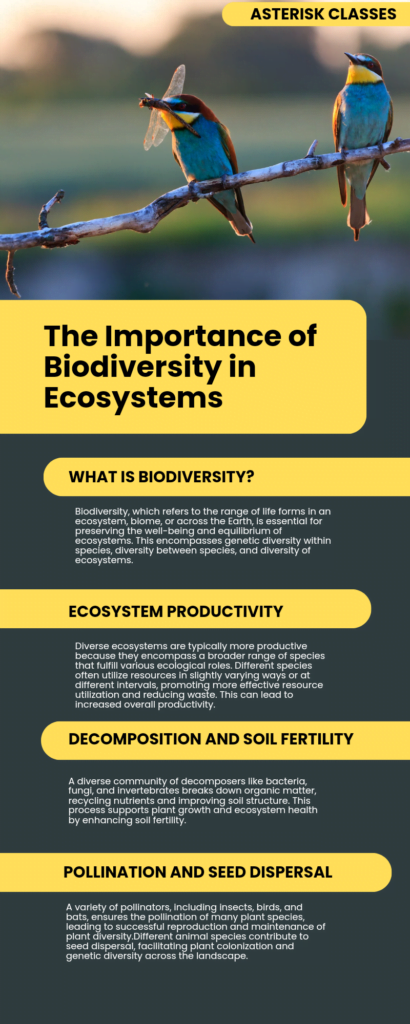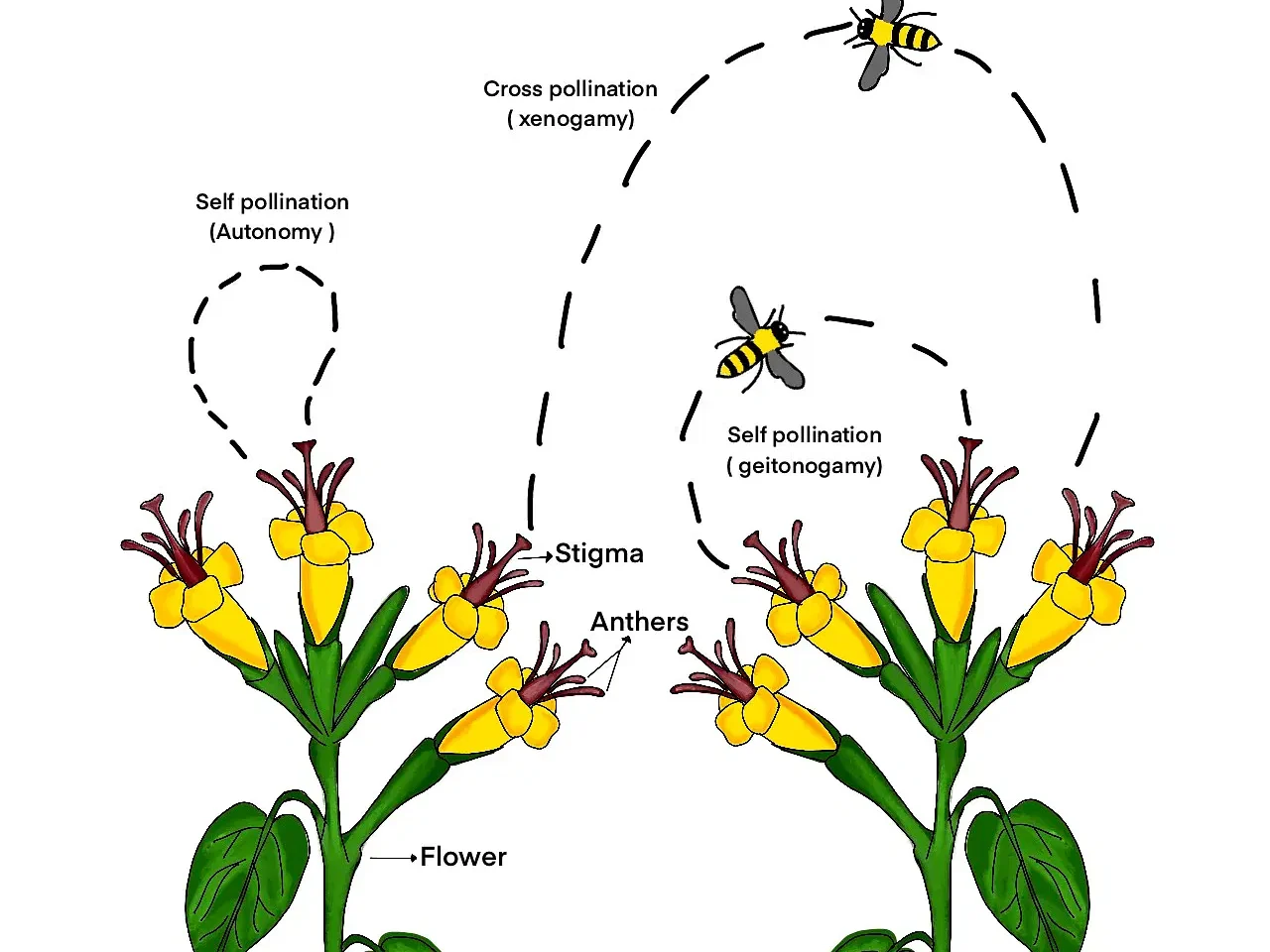 >
>Biodiversity, or biological diversity, is the variety of life on Earth. It includes the different species, genetic variations, and ecosystems found across the planet. This diversity is crucial for maintaining the balance and health of ecosystems, which in turn supports human life.
Types of Biodiversity
1. Genetic Diversity
- Definition: The variation of genes within a species.
- Example: Different breeds of dogs or varieties of apples.
- Importance: Genetic diversity allows species to adapt to changing environments, resist diseases, and maintain healthy populations.
2. Species Diversity
- Definition: The variety of species within a habitat or a region.
- Example: The different species of birds, mammals, insects, and plants in a rainforest.
- Importance: A higher number of species ensures ecosystem stability, resilience, and productivity. It also provides a greater array of goods and services to humans, such as food, medicine, and raw materials.
3. Ecosystem Diversity
- Definition: The variety of ecosystems in a given region.
- Example: Forests, deserts, wetlands, coral reefs, and grasslands.
- Importance: Ecosystem diversity supports different forms of life, ensuring the natural processes like nutrient cycling, water purification, and climate regulation continue to function.
Importance of Biodiversity
1. Ecological Stability
- Biodiversity contributes to ecosystem resilience, helping ecosystems recover from disturbances and adapt to changes, such as climate change or human activities.
2. Economic Value
- Many human industries, including agriculture, pharmaceuticals, and tourism, rely on biodiversity. Crops, livestock, and marine species are sources of food, while plants and animals provide materials for clothing, shelter, and medicine.
3. Health and Well-being
- Biodiversity contributes to human health by providing sources of medicine and ensuring ecosystem services like clean air and water. Diverse ecosystems also offer recreational and cultural benefits, improving mental and physical well-being.
4. Cultural Significance
- Many cultures around the world have deep connections with nature and biodiversity, influencing traditions, beliefs, and practices. Biodiversity enriches cultural experiences and heritage.
5. Scientific and Educational Resources
- Biodiversity offers endless opportunities for scientific research, leading to discoveries that can benefit humanity. It also provides valuable educational resources to learn about life processes and ecosystems.
Conclusion
Biodiversity is crucial for sustaining life on Earth, supporting ecosystem services, human well-being, and economic activities. Preserving biodiversity is vital for maintaining ecological balance, resilience, and the overall health of our planet.
By understanding and valuing biodiversity, we can take steps to protect it, ensuring a rich and vibrant natural world for future generations.

